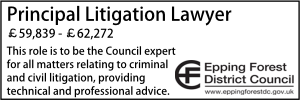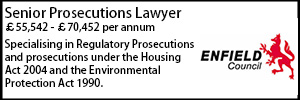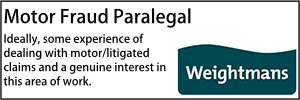Councils including Wolverhampton call for national inconsistencies in taxi licensing to be tackled
Councils have called for the introduction of more robust national taxi licensing standards, warning that inconsistent local regimes fuel “licence shopping”, undermine safeguarding and erode public confidence.
- Details
City of Wolverhampton Council – which has been at the heart of the debate about cross-border licensing as it has licensed some 50,000 private hire drivers, 96% of whom live outside the city – has meanwhile backed a national regime with uniform standards.
The calls come in response to a Transport Committee inquiry launched in July 2025, which asked for views about the current regulations which allow licensing authorities to apply their own standards.
The committee also asked for responses on ''cross-border licensing'', which leads to authorities handing licences to drivers that operate outside of their areas.
The Mayor of Greater Manchester, Andy Burnham, has previously called for an end to the controversial practice, after pointing out that almost half of the taxis operating in the city held out-of-area licences.
In its written evidence to the committee, Wolverhampton said it is "clear that the current licensing regime needs to change", adding that the council's key priority was the protection and safety of the public.
On cross-border licensing, Wolverhampton said it supported a national regime with uniform standards, arguing that it would reduce the appeal of drivers looking outside their local authority for licences.
It added: "The current licensing system does not allow licensing authorities such as Wolverhampton to reject drivers or applications unless they are not fit and proper or do not meet other very limited criteria.
"The council has done a lot to try and mitigate the potential impact of the large number of drivers/operators who have applied to the council for licenses but critically it cannot choose to reject applications for a lack of connection with our city, and it is also important to note that licensing authorities cannot use licensing income for other purposes, and cannot make a surplus on the fees."
It warned against implementing minimum standards instead of national standards, as variation in standards across the country would encourage "license shopping".
Elsewhere, Wolverhampton said legislative changes should be made in order to give licensing authorities the power to suspend a licence pending investigation - and magistrates and crown courts should be empowered to revoke and suspend licences at the point of sentencing.
It also called for licensing officers to be handed powers to suspend other licensing authorities' licences, "to prevent the driver continuing to work on a ‘back up’ licence held elsewhere".
Transport for Greater Manchester (TfGM) - in collaboration with the area's 10 licensing authorities – meanwhile issued a response criticising the “inconsistent” licensing standards across authorities.
In April Andy Burnham, Mayor of Greater Manchester, called for taxi licensing powers to be handed to Mayoral Combined Authorities.
In its written evidence, TfGM said the current system creates “confusion", "undermines public confidence", and complicates the process for raising concerns or complaints.
“National harmonisation of standards presents a valuable opportunity for greater consistency, improved public confidence and improved support across the sector”, it added.
However, TfGM also warned the success of a national scheme “depends on the reasonableness and appropriateness of those standards, and most importantly on their implementation and ensuring compliance with them”.
The Local Government Association (LGA) meanwhile voiced support for national standards on safeguarding, a national database for drivers, and national enforcement powers for the trade.
Its response made particular mention of the findings of Baroness Casey's report into child exploitation, which the LGA said "clearly [demonstrated] the crucial role licensing authorities must play in safeguarding and has highlighted concerns around out of area working".
The LGA said: "The Government should introduce more robust national minimum standards on safeguarding to improve consistency and ensure all drivers are subject to high standards. This should be supported by the development of a national database of all licensed taxi/PHV drivers, vehicles and operators to facilitate greater information sharing between partners and assist with safeguarding, as well as national enforcement powers accompanied by additional resources to enable licensing officers to take action against any driver operating in their area."
The LGA also called for the urgent introduction of a comprehensive Taxi and PHV Licensing Reform Bill to replace the current "outdated" legislation.
The Transport Committee’s inquiry is ongoing.
Adam Carey
Trust Solicitor (Public & Healthcare Law)
Trust Solicitor (Employment & Contract Law)
Locums
Poll



























